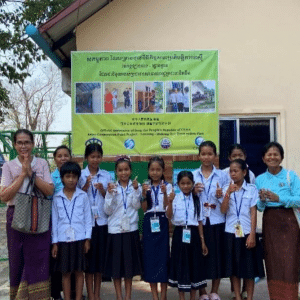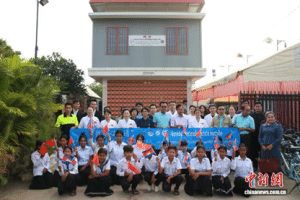 People with autism performing at the event
People with autism performing at the event
A charity event named “Blue Ribbon — focusing on the growth and employment of those with autism” was held in Beijing last Saturday, in order to mark the 25th International Day of Persons with Disabilities. The activity was aimed at promoting social understanding of autism, drawing attention to the problems faced by young adults with autism, and helping them to recover as far as possible, give full play to their strengths and integrate into society.
The 2016 Blue Book <Chinese autistic education and rehabilitation industry development report Ⅱ> was released on the occasion. The report combs through the development, current status and dynamics of the autistic education sector from various perspectives, and puts forward some suggestions. It was authored by the Wucailu Autism Research Center based on questionnaires given to 47 institutions in 29 Chinese provinces in 2015, alongside some relevant information from various institutions. The Wucailu Autism Research Center was one of the pioneers first engaged in the rehabilitation of children with autism. The Center has intervened on more than 6,000 children with autism over the last 12 years.
The <older autistic youth employment status report> was also released during the event, pointing out the dilemmas facing adults with autism more directly. Because of the lack of a social service system and preferential policies targeted at autistic groups, as well as inefficiency in the use of funds, the adolescent and adult autistic groups have long been suffering from problems in vocational education, supportive employment and pension provisions.
A “national autism rehabilitation employment information platform” was established and presented during the Beijing event. This is the first auxiliary employment platform which can provide a free information sharing system for people with autism and for companies all over China. Previously, the channels which stored the data of autistic people were very scattered, stored mainly with civil affairs, education, CDPF and other relevant departments. This made it inconvenient to provide rehabilitation, training and help for people with autism. It is hoped that the birth of this platform will greatly improve the situation.
On the platform’s starting day, more than 20 enterprises voluntarily provided jobs to the “Love Workshop”. Out of the 69 autistic people who inputed their information into the platform, nine found a suitable position, and another three received support from local disability and human resources agencies and other public institutions.



